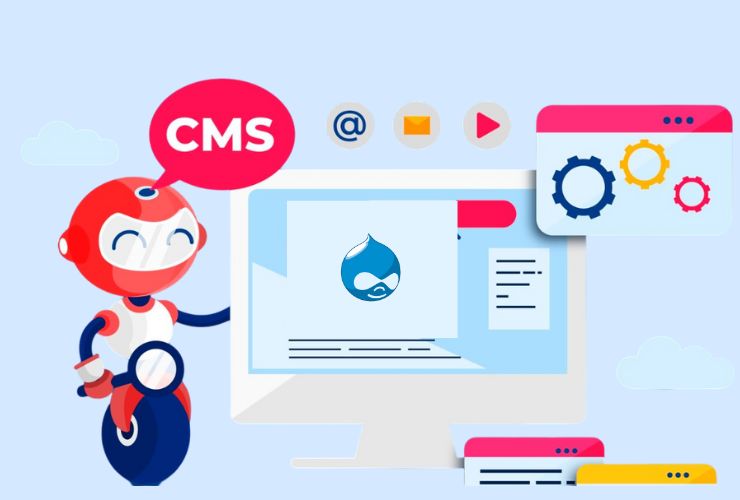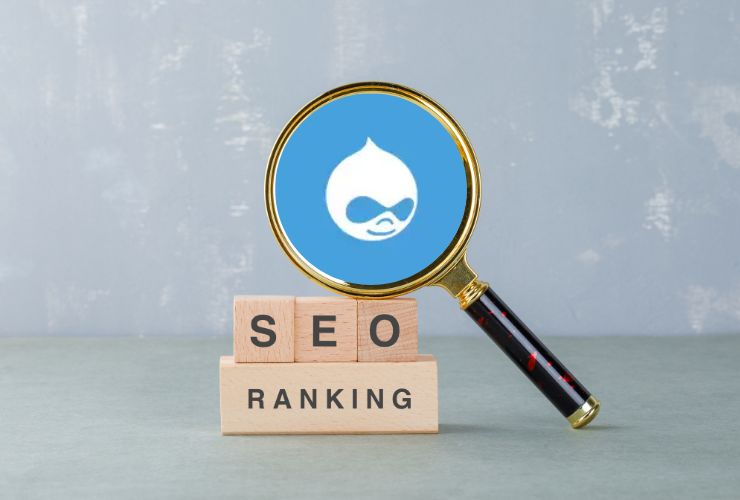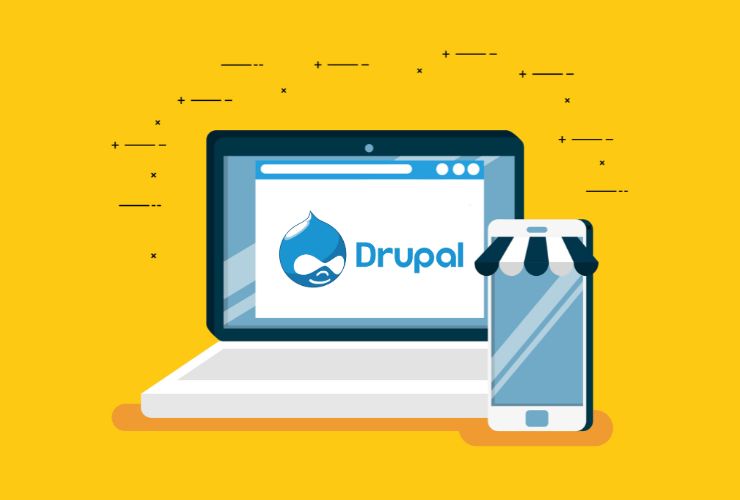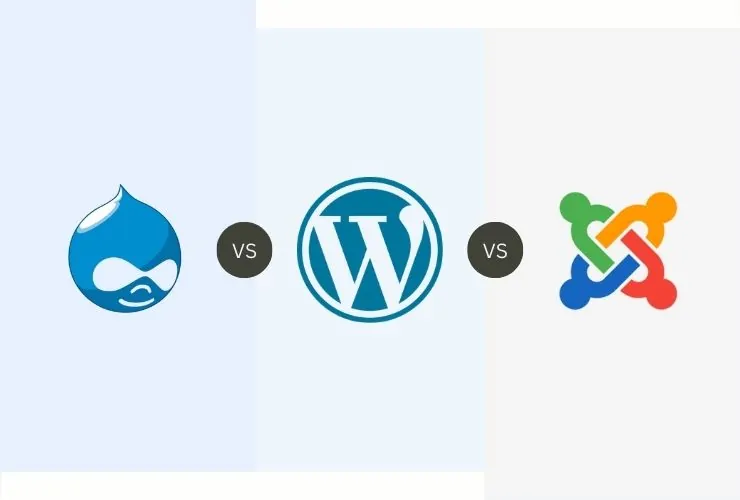Drupal as an open-source CMS is currently a favorite in business to create high-performing websites. From multinational organizations, government agencies to big companies around the world, Drupal is capable of delivering enterprise-grade security, in-depth customizability features, API-first development, and multilingual capability that make it a best solution for sophisticated web projects.
For companies operating large-scale online operations, choosing a suitable content management system (CMS) is of utmost significance. They require one that is secure, scalable, flexible, and robust enough to handle dynamic content, heavy traffic, and complex functionalities.
Whether you are developing a corporate website, government portal, media website, eCommerce store, or community website, Drupal provides the reliability and flexibility organizations need to thrive on the web.
Why Companies Choose Drupal
1. Unmatched Scalability for High-Traffic Sites
- Enterprise websites receive millions of visitors on a daily basis, and such amounts of traffic should be managed by an efficient and scalable CMS. Drupal can manage huge amounts of content and concurrent users without sacrificing performance.
- Reputable companies like NASA, Tesla, and The Economist use Drupal to build high-traffic, content-intensive sites.
- It provides support for high-speed advanced caching capabilities like BigPipe to deliver content at high speeds and better performance even under heavy loads.
- Companies can add new functionality and features without impacting the website’s speed or stability.
2. Enterprise-Level Security & Compliance
Security is a top concern for businesses that handle personal user data. Drupal features the best-in-class security controls, making it a leader in industries like finance, healthcare, and government, which require tight data control requirements.
- It has a group of skilled security experts who work actively to find, examine, and fix vulnerabilities.
- It adheres to security compliance standards such as GDPR, HIPAA, PCI DSS, and FedRAMP.
- Integrated functionalities like role-based access control (RBAC), database encryption, and security modules secure data.
- Regular security patches and updates render Drupal sites invulnerable to cyber attacks.
3. Customization & Flexibility for Sophisticated Business Requirements
- Every business organization has unique business requirements, and Drupal’s modular architecture makes it extremely customizable.
- Over 40,000+ contributed modules extend Drupal’s functionality, from eCommerce solutions to workflow automation.
- Enterprises can create bespoke modules that are tailored to their specific needs.
- It allows companies to create industry-specific solutions, whether it is for banking, education, media, or non-profit organizations.
4. Multilingual Capabilities for Global Expansion
- For companies that have operations in multiple countries, a multilingual website is essential to engage global audiences.
- Drupal offers native language translation of content and interface, with support for over 100 languages.
- Unlike other CMS platforms that require third-party plugins to support multilingual content, Drupal natively supports multilingual content.
- Content that is localized, regional SEO campaigns, as well as geolocation-dependent functionalities can be managed by businesses in an effortless manner to boost user engagement.
5. API-First Architecture for Seamless Integrations
- Modern businesses are founded on numerous software applications like CRMs, ERPs, marketing automation, and eCommerce systems. Drupal’s API-first architecture supports seamless integration with third-party applications.
- Scales RESTful API, JSON:API, and GraphQL to make the data transfer efficient.
- Pluggable on top of existing platforms like Salesforce, HubSpot, Marketo, and SAP.
- Gives businesses a choice to go for a headless CMS approach with Drupal as the backend and a front-end rendered with React, Vue.js, or Angular to offer improved experiences.
6. Strong Community Support & Resilience
- Unlike commercial CMS systems, which rely on a single vendor, Drupal has a live open-source community with thousands of developers, contributors, and businesses continually contributing to the platform.
- 1.3 million global community providing technical support and documentation for free.
- Constantly updated and contributed-to features enhance Drupal’s functionality, security, and performance.
- Enterprise users need not worry about vendor lock-in or the steep price of licensing fees.
7. Mobile Responsiveness & Performance Optimization
- Businesses need to provide frictionless experiences across all devices, and Drupal facilitates mobile-first, responsive design.
- Fully responsive themes and layouts for an excellent user experience on desktops, tablets, and smartphones.
- Sophisticated performance optimization capabilities such as lazy loading, image optimization, caching, and database tuning to enhance page loading speeds.
- Supports modern web applications (PWAs) to increase cell phone capabilities..
8. Comprehensive SEO & Online Marketing Capabilities
A website that is highly optimized is significant for brand consciousness and customer achievement. Drupal contains strong SEO components and online marketing capabilities, with which businesses are able to raise their online footprint effectively.
- Accommodates customizable URL formations, metadata, and schema markups.
- Included SEO modules in XML sitemaps, keyword optimization, and automatic meta tags.
- Seamless integration with Google Analytics, Adobe Experience Manager, and marketing automation platforms.
- Content personalization features for serving relevant experiences based on user behavior.
9. Cost-Effective & Future-Proof Solution
- Unlike expensive proprietary CMS solutions, Drupal is free and open-source, making it an inexpensive solution for companies.
- No license fees, reducing total cost of ownership (TCO).
- Business scalability to support business growth in the future without additional heavy investment.
- Regularly updated and community-led development render Drupal future-proof.
Conclusion
For businesses looking for a highly scalable, secure, and flexible CMS, Drupal still the best bet. Its enterprise-level security, extensibility, multilingual support, and out-of-the-box integrations make it a perfect fit for sophisticated web applications.
Whether you are building a large-scale business website, a high-traffic e-commerce site, or a government portal, Drupal has the strength, flexibility, and reliability to drive digital success.
Backed by enterprise-grade performance, API-first architecture, and a robust developer community, Drupal helps businesses lead the digital competition.
If you need a future-proof, scalable, and SEO-friendly CMS for your enterprise project, Drupal is the best choice.














